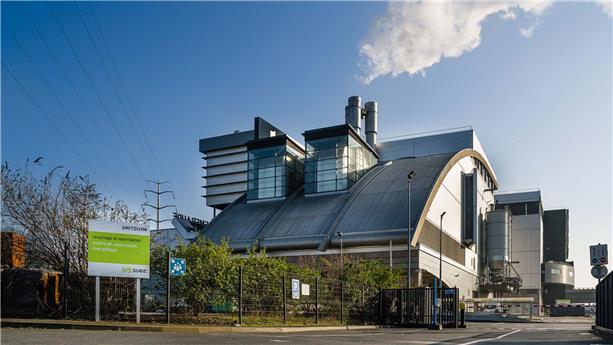
EfW
Our Energy-from-Waste plants allow you to be supplied with energy while setting up local recovery loops

The target set by SUEZ: support the energy transition of the Mars plant in France and provide it with alternative energy sources to fossil fuels to help lower its CO2 emissions.
Transform waste into energy to reduce its impact on the environment is the innovative solution we developed for the Mars group. Since 2014, the Haguenau production site has been running on green energy, produced from the waste from the neighbouring towns, which contributes to achieving the target set by Mars of zero carbon emissions by 2040.
To produce and transport the steam to the Haguenau production site, SUEZ concluded a 15-year partnership relative to the supply of sustainable energy with MARS Wrigley France, ENGIE and the SMITOM in charge of processing the household waste from Haguenau-Saverne.
The Haguenau plant is now supplied with green steam through a 1,300-metre heat network connected to the Schweighouse-sur-Moder household waste-to-energy unit. The primary steam, in line with agri-food standards, runs the production units and heats the buildings at the plant. This renewable energy source covers 90% of the plant’s energy needsand avoids the emission of 60% of greenhouse gases.
Mars has taken a big step forward towards its target of zero carbon emissions for its plants by 2040: the Green Steam project set up by SUEZ and its partners has enabled the Mars plant at Haguenau to make its energy transition and at the same time bolster its independence.The plant has access to local renewable energy:
Thanks to the energy produced from the waste of the 220,000 inhabitants of the region, the ecological, sustainable solution conceived for the Mars group also benefits the municipality and neighbouring companies such as Cenpa, a packaging manufacturer, with 50% of its energy needs covered by this green steam.
It allows considerable savings in fuel and raw materials but also makes it possible to reduce the cost of processing household waste. Each local stakeholder thus consolidates its environmental commitment.